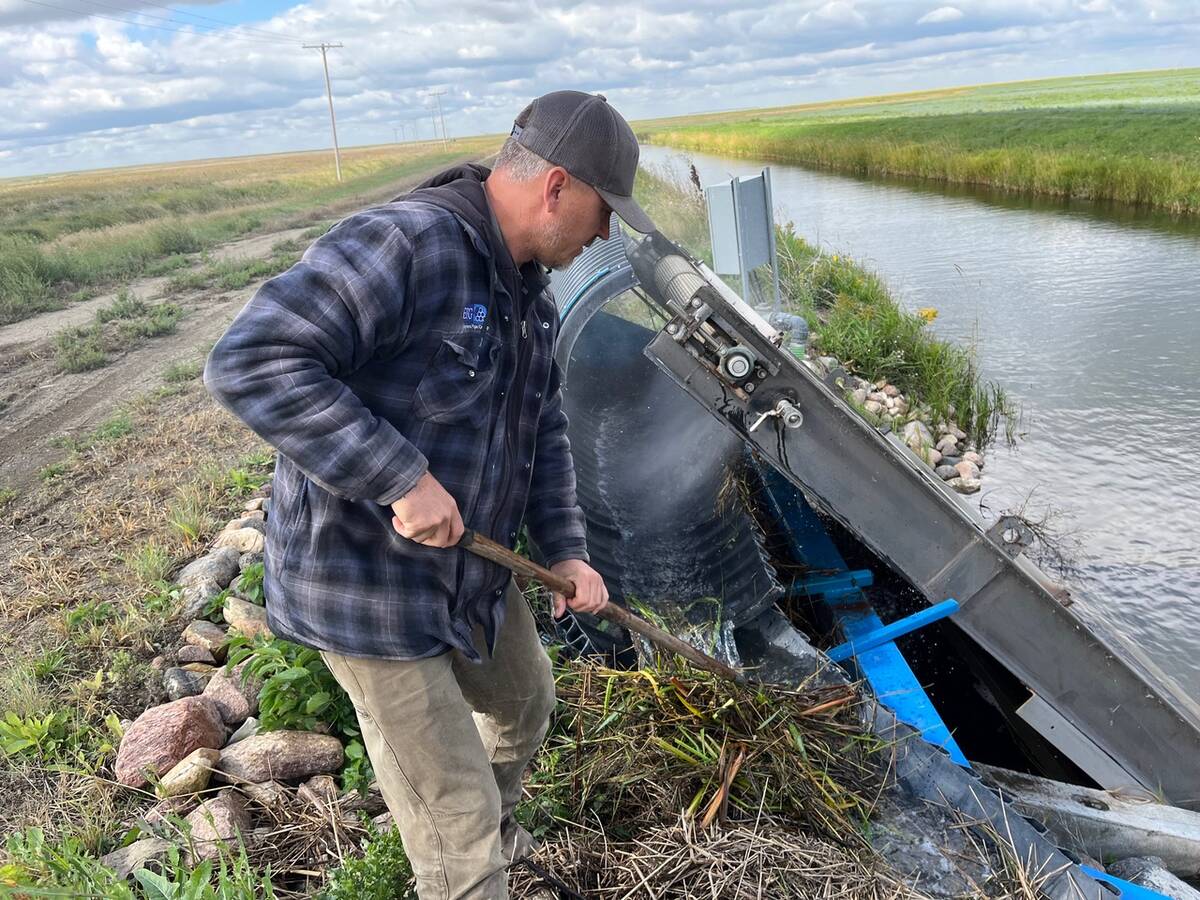Western Canada’s original farmer grain co-operative has agreed to sell nearly half its ownership shares to a foreign investor.
United Grain Growers last week announced it has entered a “strategic alliance” with the giant U.S.-based multinational food company Archer Daniels Midland.
In a complex series of financial deals, ADM will invest $113 million in UGG and end up with 45 percent of the company’s outstanding common shares.
UGG will get $50 million in new capital for investment in grain handling infrastructure, while another $63 million will go to shareholders.
Read Also

Saskatchewan farmer uses tile drainage to manage water
The integration of both irrigation and tile drainage results in higher yields, water efficiency, improved soils and less nutrient runoff, says one producer.
Under the agreement, UGG will supply grain to ADM’s network of processing plants. The two companies will also share market intelligence and communications systems.
Shareholders will be asked to approve the plan at a special meeting in Winnipeg July 17. It will also require approval from regulatory agencies.
While ADM will have only two seats on UGG’s 15-member board of directors, and UGG’s management team will remain in place, some grain industry and corporate analysts say ADM will gain effective control of UGG.
“Sure it will,” said agricultural economist Hartley Furtan. “If the other shares are fairly widely dispersed, they’ll have the biggest voting block.”
However UGG officials say the company will remain an independent, Canadian-owned firm, run by a board of directors made up largely of prairie farmers who are elected by farmer delegates.
Delegates have control
“In a decision-making sense, effective control is exercised by UGG’s farmer delegate body,” said chief executive officer Brian Hayward.
ADM has agreed not to increase its stake in the company beyond 45 percent for the next 10 years.
UGG president Ted Allen called the deal a turning point for his company, which was set up as a co-operative in 1906 by prairie farmers and began selling shares on the Toronto Stock Exchange in 1993.
“This alliance gives us a solid relationship with one of the most important end-users in the world,” he said. “There is no better partner for UGG.”
The alliance will improve UGG’s access to processing markets, long seen as one of the company’s major weaknesses. It will provide new capital for modernization and construction, and should provide a higher return for shareholders, he said.
Allen Andreas, chief executive officer of ADM, said the deal gives his company its first opportunity to make significant inroads into the Canadian grain market.
“We’ve got the opportunity to open up markets for the exports of grain from UGG and we intend to go to work on that immediately,” he said. “Our systems are already in place.”
Andreas said ADM’s investment doesn’t mean the company thinks the Canadian Wheat Board’s days as the monopoly exporter of wheat and barley are numbered.
“That was not part of our thinking,” he said. “Our decisions are based upon current business conditions.”
The two companies will enter commercial agreements that will see UGG provide milling wheat, canola and malting barley to ADM. However, Andreas said it will offer no special pricing deals to UGG.
The deal with ADM comes a couple of months after UGG successfully fought off a hostile takeover bid by Alberta Wheat Pool and Manitoba Pool Elevators. One of the reasons cited by the pools for their bid was the fear that UGG was ripe for a takeover by a foreign company.
Asked if the ADM deal vindicates the pools’ argument, Allen said it was the pools’ bid that led to the deal with ADM.
“We were under no pressure from any U.S. entity (prior to that),” he said. “As a result of the bid, there was a lot of people worldwide became aware of our company. You might say that the bid created a possibility.”
















